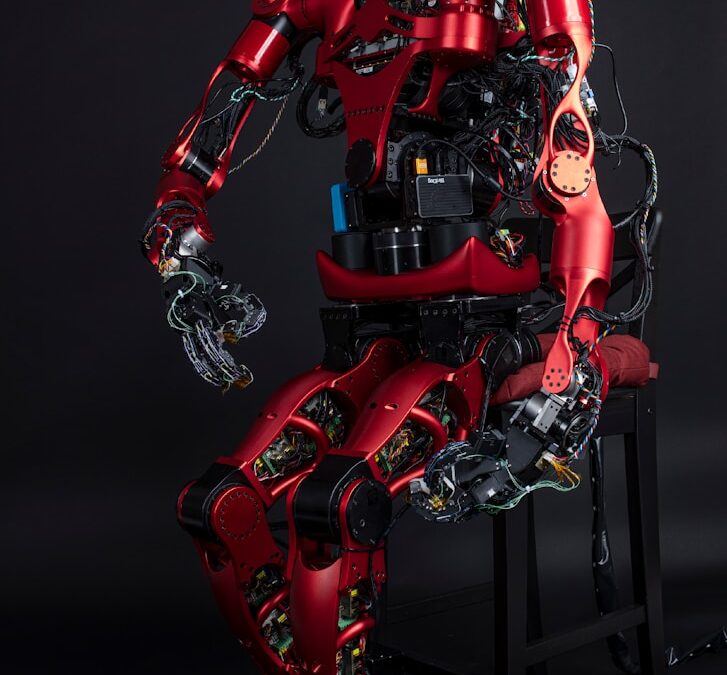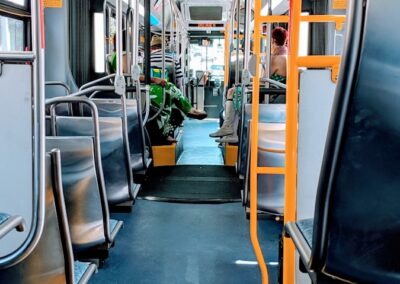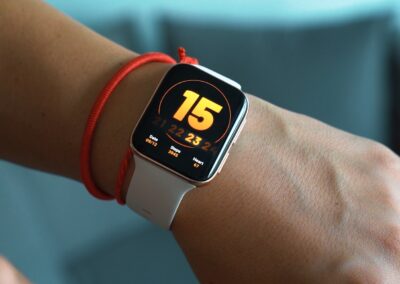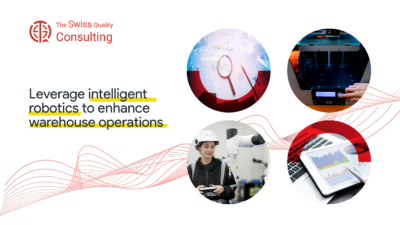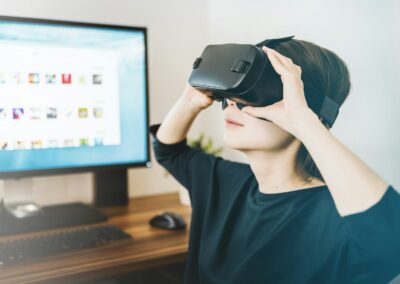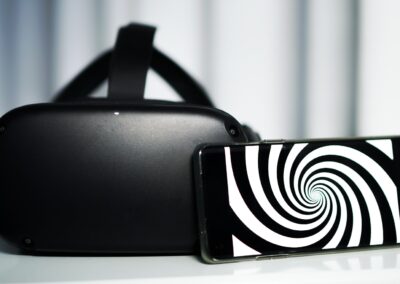How Robotics and Wearable Technologies Can Transform Lives of Individuals with Disabilities
The Synergy of Robotics and Wearable Technologies
The integration of robotics with wearable technologies is revolutionizing the support available to individuals with disabilities, offering comprehensive assistance that enhances their quality of life. This technological synergy combines the precision and strength of robotics with the adaptability and convenience of wearable tech, creating solutions that address both physical and cognitive impairments. In regions like Saudi Arabia and the UAE, where technological advancement is a priority, such innovations are particularly impactful.
Wearable robotics, such as exoskeletons, are among the most significant advancements in this field. These devices provide mechanical support to individuals with mobility impairments, enabling them to perform daily activities with greater ease and independence. Exoskeletons are designed to mimic natural movements, offering support to the wearer’s muscles and joints. In cities like Riyadh and Dubai, these technologies are being adopted in rehabilitation centers and workplaces, helping individuals regain mobility and participate more fully in society.
Moreover, the integration of AI in wearable robotics enhances the functionality of these devices. AI algorithms can analyze the user’s movements and adjust the robotic support in real-time, providing personalized assistance that adapts to the user’s needs. This level of customization is crucial for ensuring that the devices are effective and comfortable to use. For instance, AI-driven prosthetics can provide real-time feedback and adjustments, making them more responsive and user-friendly. This adaptability not only improves functionality but also boosts the user’s confidence in their ability to perform tasks.
Enhancing Communication and Cognitive Support
Beyond physical assistance, the integration of robotics with wearable technologies also offers significant benefits in enhancing communication and cognitive support for individuals with disabilities. Advanced wearables equipped with AI and machine learning can assist individuals with cognitive impairments in their daily tasks, improving their ability to communicate and interact with their environment. In Saudi Arabia and the UAE, where inclusivity is increasingly prioritized, these technologies are making a substantial difference.
Wearable devices such as smart glasses and hearing aids are equipped with AI to provide real-time translations, speech-to-text services, and enhanced audio experiences. These features are particularly beneficial for individuals with hearing or speech impairments, allowing them to engage more fully in social and professional interactions. In bustling urban centers like Riyadh and Dubai, where effective communication is essential, these advancements are breaking down barriers and fostering inclusivity.
Furthermore, wearable technologies can provide cognitive support through applications that assist with memory, organization, and decision-making. For example, smartwatches with AI capabilities can remind users to take their medication, schedule appointments, and manage their daily tasks. These features are invaluable for individuals with cognitive impairments, offering them greater independence and reducing the burden on caregivers. In the UAE, where healthcare innovation is a key focus, such technologies are enhancing the lives of many.
Implementing Robotics and Wearable Tech in Business and Education
The implementation of robotics and wearable technologies in business and education sectors further underscores their potential to support individuals with disabilities. In Saudi Arabia and the UAE, businesses and educational institutions are increasingly recognizing the value of these technologies in creating inclusive environments. By integrating wearable robotics and AI-driven devices, these sectors can provide comprehensive support to employees and students with disabilities, enhancing their participation and success.
In the business sector, wearable robotics can improve workplace accessibility and productivity for individuals with disabilities. Exoskeletons and other assistive devices can help employees perform physical tasks that would otherwise be challenging, enabling them to contribute effectively to their teams. AI-powered wearables can also assist in monitoring health and wellness, providing real-time data that helps employers create supportive work environments. This approach not only enhances employee well-being but also drives business success by fostering a diverse and inclusive workforce.
In the education sector, wearable technologies can transform the learning experience for students with disabilities. AI-driven devices can provide personalized learning support, adapting to the needs of each student and helping them overcome learning barriers. For instance, smart glasses can offer real-time translations and visual aids, while AI-powered apps can assist with organization and task management. In regions like Riyadh and Dubai, where education is a top priority, the adoption of these technologies is promoting greater inclusivity and academic success.
Case Studies: Robotics and Wearable Tech in Saudi Arabia and the UAE
Examining case studies from Saudi Arabia and the UAE highlights the transformative impact of integrating robotics with wearable technologies for individuals with disabilities. In Riyadh, rehabilitation centers have successfully implemented exoskeletons to assist patients with mobility impairments. These devices have enabled patients to regain their independence and improve their quality of life. The use of AI in these devices ensures that the support provided is tailored to the individual’s needs, enhancing their effectiveness.
In Dubai, educational institutions are utilizing wearable technologies to support students with learning disabilities. Smart wearables equipped with AI provide real-time assistance, helping students stay organized and manage their tasks effectively. These technologies are also used to enhance communication, breaking down barriers for students with speech or hearing impairments. By creating more inclusive learning environments, these institutions are setting new standards for education in the region.
Both Saudi Arabia and the UAE are also exploring the use of wearable tech in the workplace. Businesses are adopting exoskeletons and other assistive devices to create more accessible work environments. This not only enhances the productivity of employees with disabilities but also promotes a culture of inclusivity and diversity. By prioritizing the integration of robotics and wearable technologies, these regions are leading the way in creating supportive and empowering environments for individuals with disabilities.
The Future of Robotics and Wearable Tech for Disabilities
As robotics and wearable technologies continue to evolve, their potential to support individuals with disabilities will only grow. In regions like Saudi Arabia and the UAE, where technological innovation is embraced, the future holds promising advancements that will further enhance the quality of life for individuals with disabilities. The integration of AI, machine learning, and advanced robotics will lead to the development of more sophisticated and intuitive devices that offer even greater support.
One area of significant potential is the use of robotics and wearable technologies in the Metaverse. As virtual and augmented reality environments become more prevalent, wearable devices will play a crucial role in providing immersive sensory experiences. Users in Dubai and Riyadh will be able to interact with digital environments in ways that feel tangible and real, enhancing both personal and professional engagements. This integration will open up new possibilities in fields such as education, entertainment, and remote work, making the virtual world more accessible and engaging.
Another promising direction for wearable tech is in the realm of Generative Artificial Intelligence. Wearable devices equipped with generative AI can create personalized sensory experiences based on user preferences and needs. For example, AI can generate custom soundscapes to enhance concentration or relaxation, tailored to the user’s environment and activities. In the business sector, this technology can be used to create optimized work environments that enhance productivity and creativity.
In conclusion, the integration of robotics with wearable technologies offers comprehensive support for individuals with disabilities, enhancing their quality of life through physical, cognitive, and communicative assistance. By leveraging the power of AI and other modern technologies, Saudi Arabia and the UAE are setting new standards for inclusivity and innovation, ensuring that these advancements truly serve the greater good of society.
#Robotics #WearableTech #Disabilities #AI #SaudiArabia #UAE #Riyadh #Dubai #ModernTechnology #BusinessSuccess #Innovation #InclusiveTech

